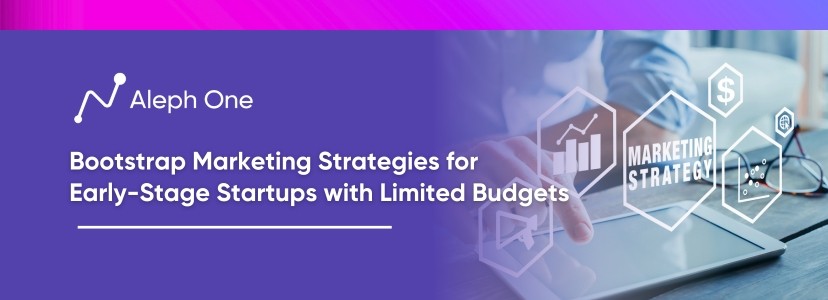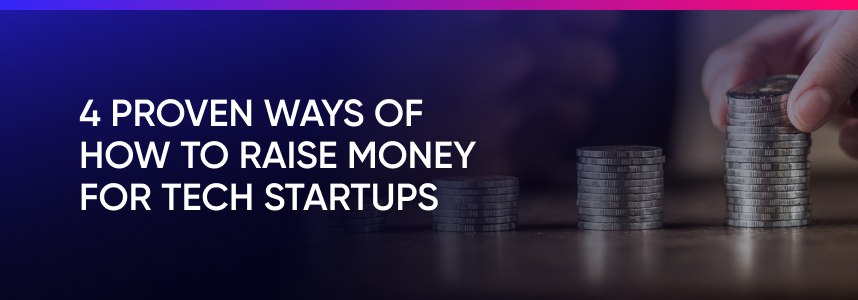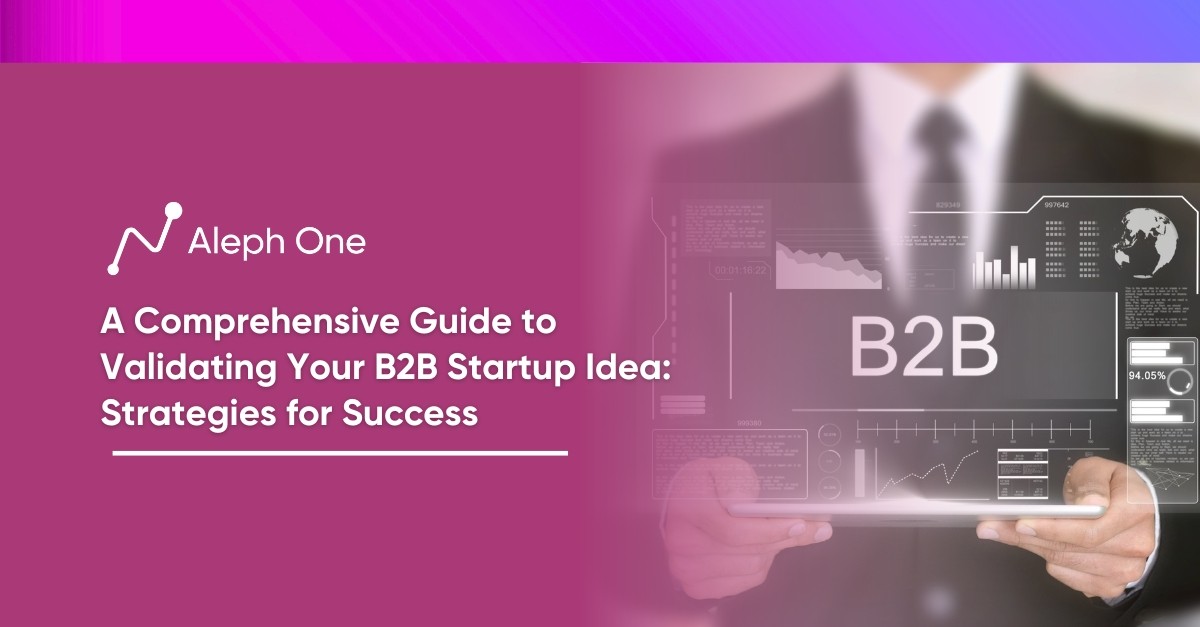Let’s work together to build something amazing. Share your project details and our team will reply to figure out the next steps to your success.
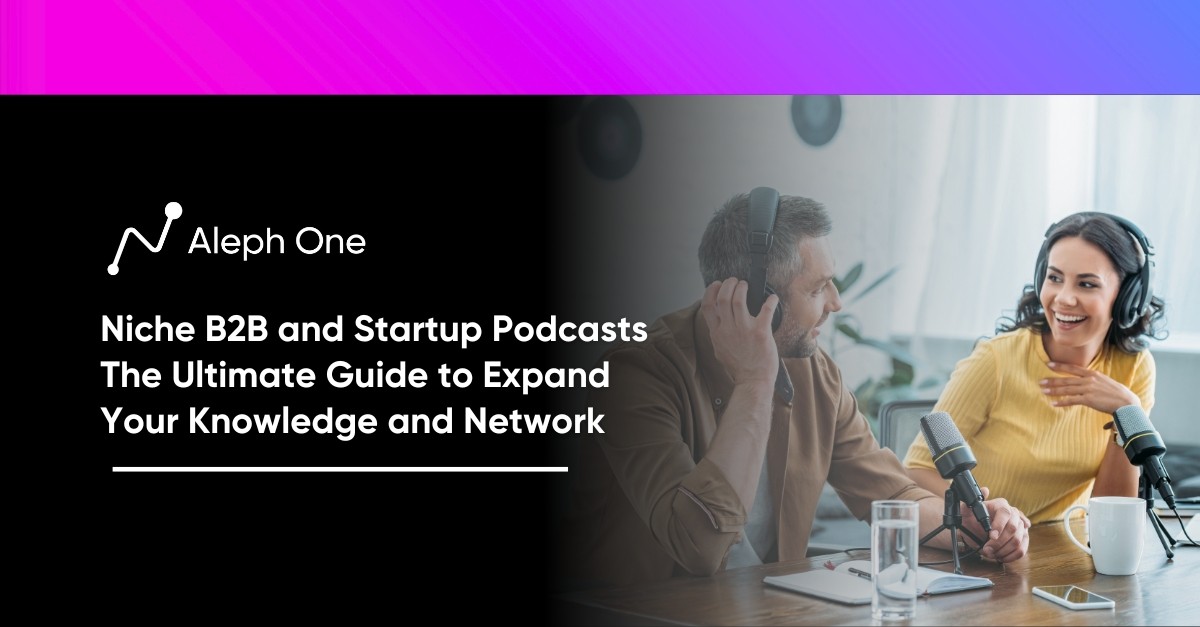
Podcasting has become a powerful medium for B2B brands to connect with their audiences authentically and meaningfully. With over 700,000 active podcasts and a growing listener base, B2B podcasts have seen a surge in popularity, allowing brands to build trust, establish thought leadership, and boost brand awareness. In this comprehensive guide, we explore the rise of B2B podcasts, the power of audio in strengthening customer relationships, crafting an effective podcast strategy, amplifying reach, monetization models, and the future trends and predictions shaping the world of B2B podcast marketing. Whether you’re a startup or an established B2B brand, this guide will equip startups with the knowledge and strategies to launch and grow a successful podcast.
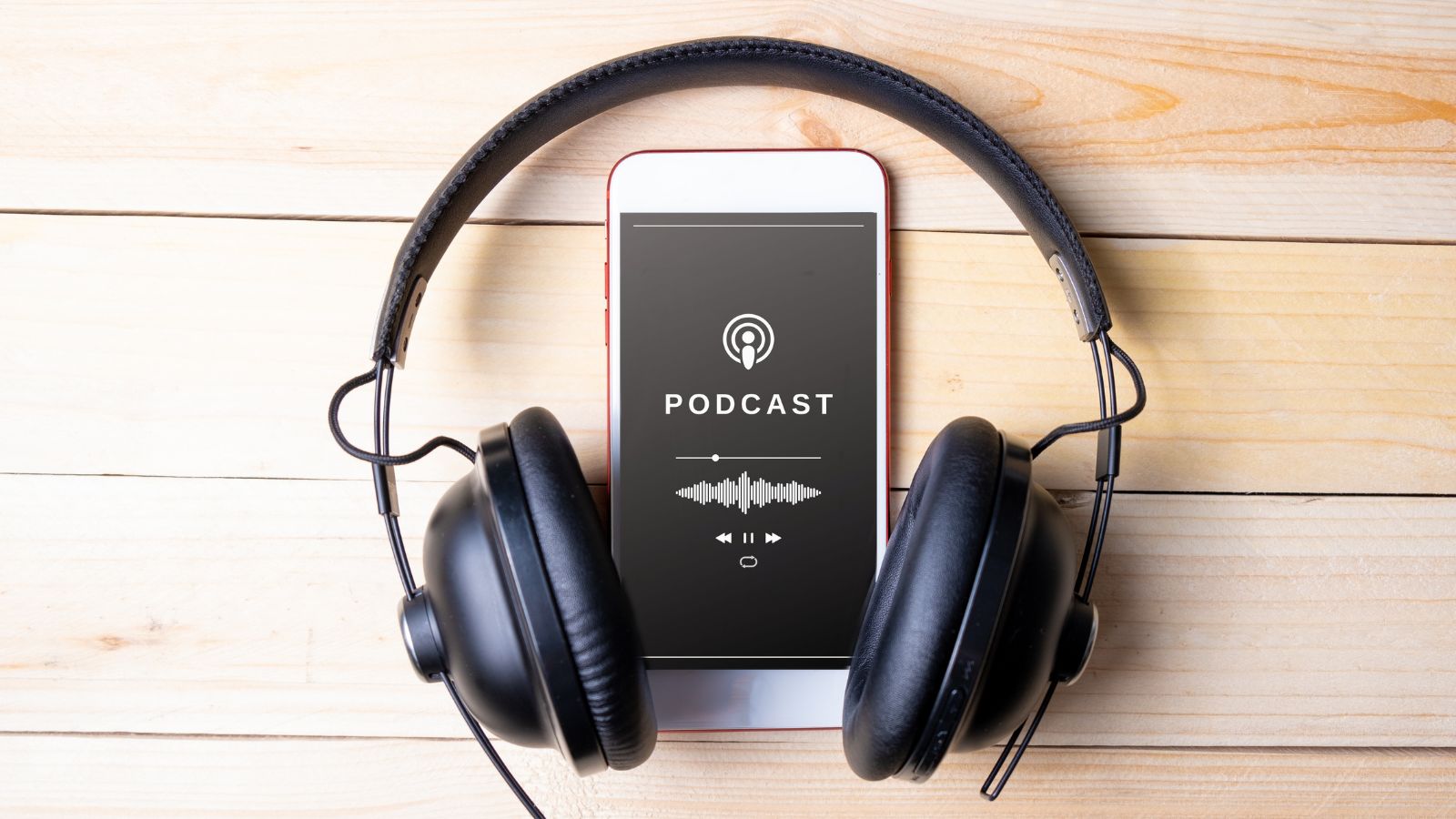
The Rise of B2B Podcasts: How Podcasting Built a Loyal Following
Podcasting has experienced massive growth over the last decade, and B2B brands have significantly benefited from this medium. According to Edison Research, over 700,000 active podcasts exist, and over 32% of Americans listen to podcasts monthly. B2B podcasts, in particular, have seen a surge in popularity, with listenership increasing by over 50% in the last five years.
Authentic and Intimate Experience of Podcasts
B2B podcasts have built a loyal following thanks to the intimate and authentic experience. Unlike blog posts or videos, podcasts allow brands to have a genuine two-way conversation with their audience. Listeners feel like they get to know the hosts and connect with the brand personally. According to a survey by HubSpot, over 70% of B2B buyers appreciate educational content like podcasts.
Salesforce and Hubspot Leverage Podcasting
Several B2B companies have leveraged podcasting to raise brand awareness and strengthen customer relationships. For example, Salesforce’s official podcast, “The Salesforce Podcast,” has generated over 2 million downloads and counting. Hosted by Salesforce executives, the show provides insights into how innovative companies use technology to transform their businesses. Another example is HubSpot, whose podcast “The Growth Show” tells stories of entrepreneurs and business leaders to inspire their audience of growth-minded professionals.
B2B podcasts can be a remarkably effective marketing channel when done right. They allow brands to build trust and authority in their industry while delivering value to listeners. While launching a podcast requires a severe time and resource commitment, B2B companies that establish a regular cadence of high-quality, educational episodes will find an enthusiastic and loyal audience.
The Power of Audio: Why B2B Podcasts Are a Marketing Must-Have
Podcasts have become a powerful medium for B2B brands to connect with their audiences authentically. The intimacy of audio allows listeners to get to know the people behind the brand and form meaningful relationships. According to Edison Research, 37% of Americans listen to podcasts monthly. For B2B marketers, podcasts present an opportunity to reach a large, engaged audience eager to learn.
Establishing Thought Leadership
One of the most significant benefits of B2B podcasts is establishing thought leadership. By sharing insights, expertise, and advice, brands can position themselves as trusted authorities in their industry. Software company HubSpot launched The Growth Show podcast to highlight strategies for business growth. The show receives over 150,000 downloads monthly, strengthening HubSpot’s positioning as a leader in inbound marketing.
Boost Brand Awareness
Podcasts are also effective for boosting brand awareness. A memorable podcast name, theme music, and hosts become strongly associated with the brand in listeners’ minds. Accounting firm KPMG’s podcast, Me, Myself and AI, has raised visibility for the company’s expertise in emerging tech. According to KPMG, the show led to a 15-20% increase in web traffic and over 6 million impressions on social media.
Generate Sales Leads
B2B podcasts generate high-quality leads that are primed for sales. Listeners who opt-in to email newsletters or take action like downloading a resource are demonstrating interest in the brand. Marketing agency IMPACT launched the B2B Revealed podcast to capture leads and accelerate their sales pipeline. The show generated over $2 million in new opportunities within six months.
Strengthen Customer Relationships
Finally, podcasts help to strengthen customer relationships. Existing clients will appreciate the value and insights provided in episodes. Software company Drift uses their popular Seeking Wisdom podcast to engage and educate their customers. They report that the show has been crucial for customer success, support, and retention.
B2B podcasts should be vital to any content marketing strategy. Whether establishing thought leadership, boosting brand awareness, generating leads, or enhancing customer loyalty, podcasts provide an opportunity to connect with your audience meaningfully. The intimacy of audio allows B2B brands to build trust and form lasting relationships that drive business growth.
Crafting Your B2B Podcast Strategy: A 6-Step Blueprint for Launching Your Show
Developing a well-defined podcast strategy is critical to launching a successful B2B show. Here are the six steps to crafting your podcast blueprint:
1) Choose a Format
Decide between an interview show, solo show, or co-hosted show based on your skills and audience needs. Interview shows require guests. Solo shows allow you to share expertise freely. Co-hosted shows bring different perspectives.
2) Define Your Target Audience
Determine your ideal listener regarding your job role, industry, company size, and pain points. An HR podcast may target HR managers at mid-size companies.
3) Establish Your Positioning
Develop a unique angle and voice to differentiate your show. For example, take a contrarian or controversial stance or highlight an underserved niche. Your positioning should align with your company’s brand and key messages.
4) Pick a Memorable Name
Choose a search-friendly name that reflects your positioning and resonates with your target audience. For a show on marketing analytics, “The ROI Podcast” or “Marketing Metrics Maven” would be apt names.
5) Invite Influential People
For interviews, line up guests who are respected thought leaders in your industry—research to find guests your audience will value. Provide questions in advance and promote guests on social media.
6) Promote and Distribute Your Show
Submit your podcast to directories like iTunes and Stitcher and promote new episodes on social media, email, and your company blog and site. Run contests and giveaways to increase engagement. Build your email list by offering a content upgrade.
You can develop a podcast strategy tailored to your brand and audience needs using these steps. With a well-defined blueprint, you’ll confidently launch your B2B podcast and set the foundation for a successful show. Staying consistent and frequently optimizing your strategy will help amplify your reach over time.
Amplify Your Reach: How to Grow Your B2B Podcast Audience
The work isn’t done once you launch your B2B podcast. You must employ tactics to increase your show’s exposure and drive more downloads to build a sizable listenership.
Optimize Your Podcast on Google and Search
First, focus on optimizing your podcast for search engines like Google. Choose a title, episode names, and descriptions that contain important keywords for your topic and industry. This will make it more likely for people to discover your show when searching for relevant terms. You should also create a blog on your website to house full transcripts of each episode, which Google can index.
Improve the Audio Quality
Improving your audio quality is another way to provide a better experience for listeners and gain more subscribers. Invest in high-quality microphones, recording equipment, and editing software to make your show sound as professional as possible. You might also explore distributing your podcast on multiple platforms like Apple, Spotify, Stitcher, and Google Podcasts to reach more potential fans.
Tap Into Influencer Guests
Booking influencer guests in your industry is an effective tactic for tapping into new audiences. When interviewing thought leaders and experts, promote the episode to their followers on social media and in their email newsletters. This cross-promotion exposes your show to audiences already interested in the topics and insights your guest provides.
Promote the Podcast on Multiple Marketing Channels
You should also promote your podcast on all your marketing channels, including your email newsletter, blog, social media profiles, and live events. Run contests, giveaways, and other promotions on your show to increase engagement and word-of-mouth marketing. For example, you can offer free products or services from your company as prizes for listeners who rate, review and subscribe to your podcast.
Monetization Models: How B2B Podcasts Can Generate Revenue
B2B podcasts have several options for generating revenue from their shows. Sponsorships and advertising are popular models, where hosts read pre-recorded ads or interview sponsors live during episodes. According to research, the average CPM (cost per thousand impressions) for a 30-second B2B podcast ad is between $18 to $25. Sponsorships can generate even higher rates, from $5,000 to $50,000 per episode for well-established shows.
Paid Subscription Model
Some B2B podcasts operate on a paid subscription model, charging listeners a monthly or annual fee for ad-free content and exclusive bonus material. While building a loyal subscriber base can take time, subscription fees provide a predictable source of income. Business podcasts like Manager Tools and Marketing School charge $10 to $30 monthly for ad-free access to their content libraries and member communities.
B2B Product Placements
B2B product placement is another way for podcasts to make money. Hosts mention or feature a product during an episode in exchange for a sponsorship fee. Product placements must feel authentic to listeners, so the products should be highly relevant to the podcast’s audience and content. Rates for product placements range from $1,000 to $20,000 per mention depending on the show’s popularity and audience size.
Spin-Off Products
Spin-off products and services are an additional monetization avenue. Podcasters can repurpose audio content into books, online video courses, consulting services, and live events. For example, the Growth Think Tank podcast launched a paid community called the “Growth Academy,” where members get access to exclusive content and the opportunity to connect with the show’s hosts. These spin-off products allow podcasters to generate revenue through upsells to their most engaged listeners.
With so many options available, B2B podcasters should choose monetization models that feel authentic for their brand and audience. While ads and sponsorships are expected, a mix of paid subscriptions, product placements, and spin-off products may provide more stable and meaningful income over the long run.
The Future of B2B Podcasts: Trends and Predictions
Podcasting has come a long way since its inception in the early 2000s, and B2B podcasts are poised to become even more sophisticated and impactful in the coming years. Here are some of the trends and predictions shaping the future of B2B podcast marketing:
Interactive and Video Podcasts
As technology improves, podcasts are becoming more immersive. Some B2B shows are experimenting with interactive elements like polls, quizzes, and call-ins, while others are launching video podcasts to boost engagement. These interactive and multimedia formats allow for a more engaging experience and deeper audience connections.
Micro-Podcasts
With shortening attention spans, some B2B brands are launching “micro-podcasts” that last 5 to 15 minutes. These bite-sized shows are easy to consume and perfect for targeting specific topics or questions. Micro-podcasts also have the potential to go viral on social media, exposing the show to new potential listeners.
Smart Speaker Optimization
As smart speakers become more popular, B2B podcasters have an opportunity to reach new audiences through voice search and smart speaker skills. Optimizing your show for smart speakers involves creating a memorable show name and episode titles, transcribing your episodes, and developing a custom skill for platforms like Amazon Alexa or Google Assistant.
Translation and Transcription
Some B2B podcasters translate their shows into other languages or provide written episode transcripts to expand into new markets. Translation and transcription also improve the accessibility of your podcast, which can open you up to new audiences.
Influencer Collaborations
B2B brands partner with influencers, industry experts, and media companies to co-produce or cross-promote podcasts. These collaborations allow both parties to tap into each other’s audiences and build credibility. B2B podcasters can expect more crossover collaborations and influencer partnerships in the coming years.
New Tools and Platforms
New technologies are making it easier to plan, record, edit, and distribute B2B podcasts. From AI tools that can automatically transcribe and translate your show to new distribution platforms that help you reach more listeners, B2B podcasters will have more options to choose from to improve their shows and reach new heights of success. The future of B2B podcast marketing is bright, with many new opportunities on the horizon for innovative and forward-thinking brands.
Get the latest news and updates from Aleph One in your inbox.

